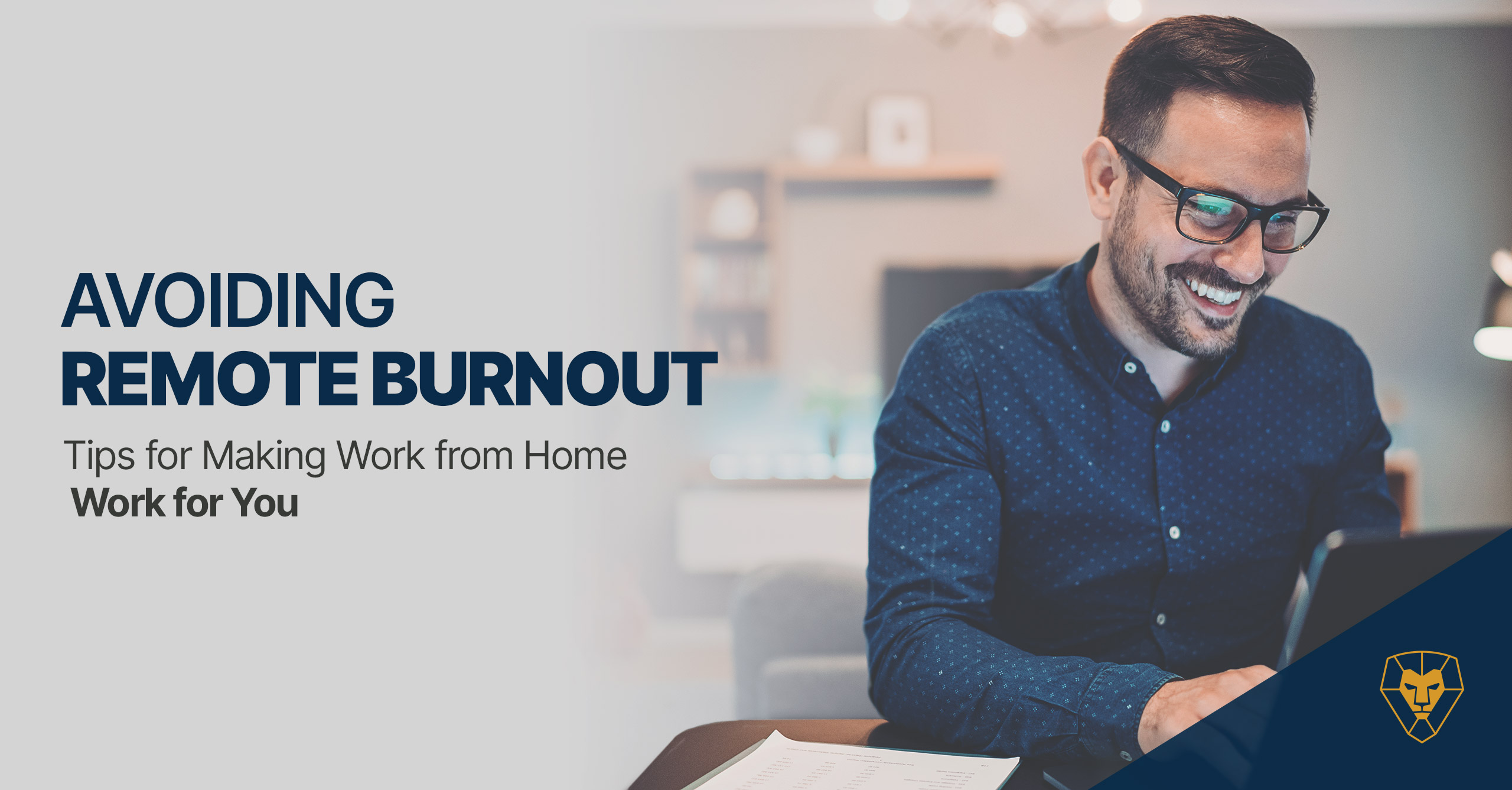
Burnout at work is nothing new—75 percent of people have experienced it at some point.
More serious than job stress or dissatisfaction, feelings of burnout can include anxiety, fatigue, lack of creativity or productivity, or difficulty focusing on your work. And the rapid shift to a fully remote environment has left a lot of us struggling to cope, with 40 percent saying they’ve experienced work burnout in the last year. If you’re feeling the pressure of the remote office, we’ve put together some tips for making work from home work for you:
Try and stick to your routine
When you work from home, it’s easy to start replacing your morning paper with morning work emails. But experts encourage people to try and stick to a normal routine as much as possible; it helps you start your day more relaxed and ready to focus on your work. Don’t have a pre-work routine? Now is a great time to make one! Use your former commute time to start a morning workout, mindfulness or other routine that will get you ready for the work day.
Communication is key
When you’re not working and collaborating in-person with your team, staying in touch online is important for staying on top of projects and building relationships with your coworkers. Take advantages of tools like Zoom and Slack to have meetings or chat with your teammates. Talk about work, but also remember to catch up with each other about other topics (shows/movies, family, concerts, etc.) so you can keep some fun in your day and take your mind off of work for a few minutes.
Log off. Really.
65 percent of people report working longer hours than usual in 2020—it’s easy to do when your office is just a few feet away from your living room. It’s important to not let your work day bleed into your personal time any more than it normally would. When your work is done for the day, get up and walk away. Leave your office area or pack up your work and put it to the side so that you can focus on personal time for the rest of your day.
Schedule social activities
Working from home, especially if you find yourself putting in longer hours, can make it feel like your work life is taking over your social life. It’s important to have dedicated time for social activities out of the office—and away from your computer!—to connect with friends and family. Try and plan activities ahead so you have a reason to leave your desk every day, and schedule them just like you would business meetings; after all, your personal time is just as important as your office time!
Ask for flexible scheduling
Your old office schedule and your work-from-home schedule aren’t always compatible. You may find that your lack of commute time means you’d like to start working an hour early; or that you’d like to start some online classes. Whatever the case may be, if you find yourself wanting some flexibility in your schedule, be sure to talk it over with your boss so you can find a work routine that is best for your new remote office.
Take your PTO
If you’ve noticed signs of burnout, taking your PTO should be a priority. Regular time off and vacations away from the office help keep you refreshed and ready to focus on tackling challenges when you’re back to work. And, when you do take time off, make sure you’re really on vacation—try to avoid checking work emails and focus on relaxing.
Take advantage of mental health resources
If you’re starting to feel the strain of working remotely, you’re not alone—76 percent of workers say that workplace stress is affecting their mental health. Many workplaces today offer employee assistance programs (EAPs) with mental health resources to help you if you’re struggling with stress, either personal or job-related. Be sure to check your benefits or talk to your HR department about options available at your company.
Looking for more remote working tips?
If you’re experiencing remote work burnout, or want to help your team succeed while working from home, check out these resources:
For employees:
- Mental Health America – mental health screenings and resources
- Burnout prevention and recovery
- Working Adults: Care for Yourself
- American Psychological Association
- National Alliance on Mental Illness
For managers: